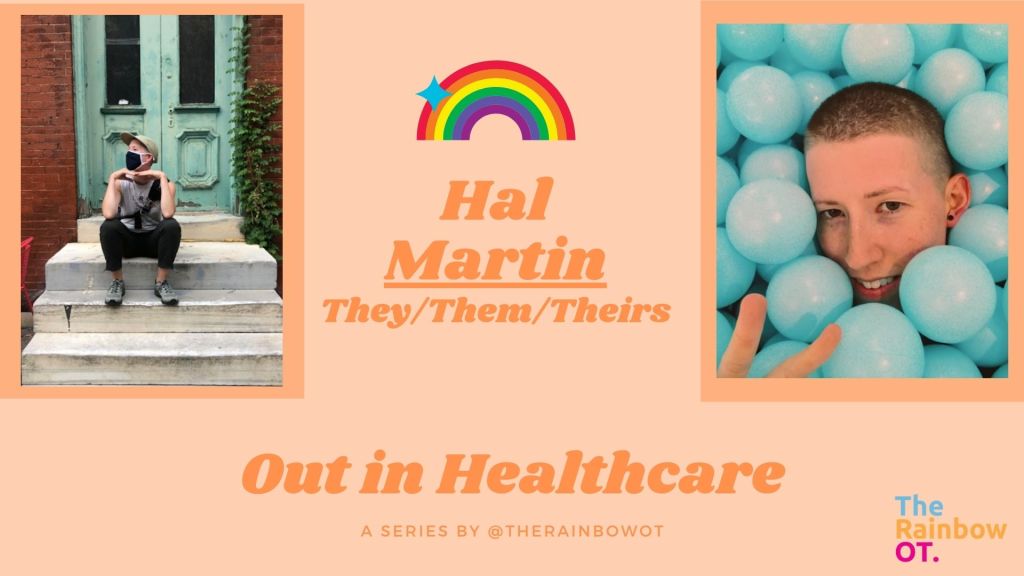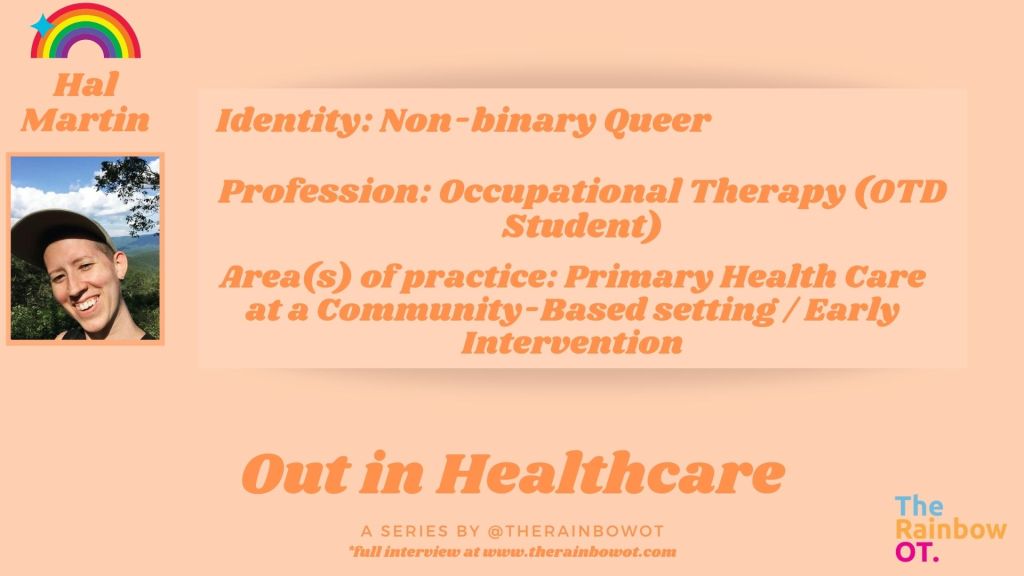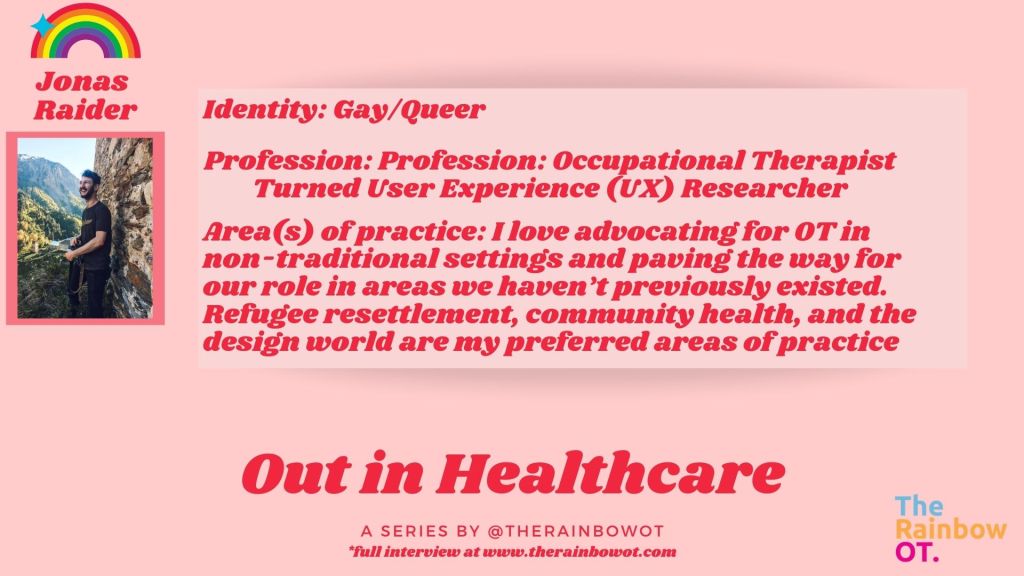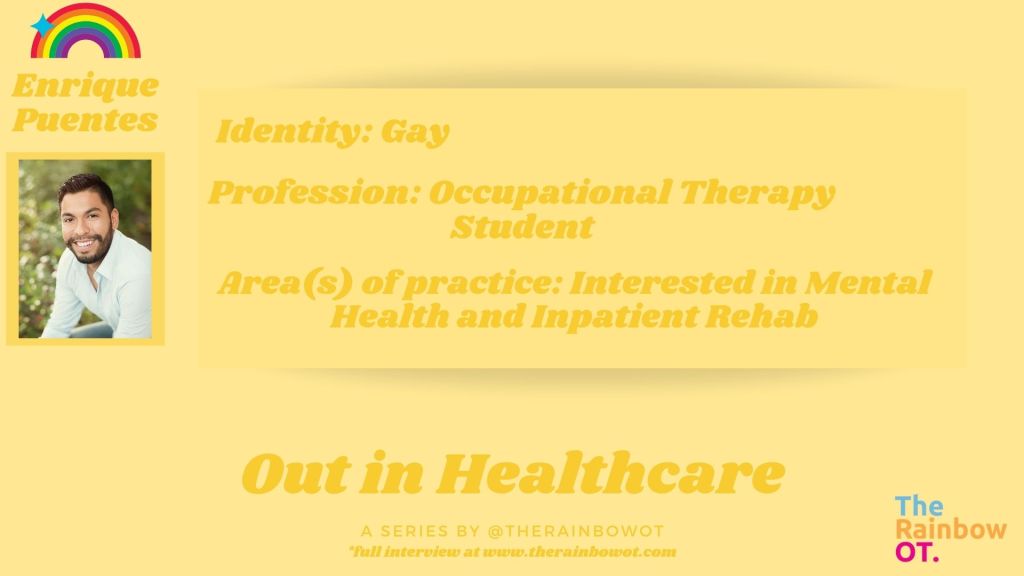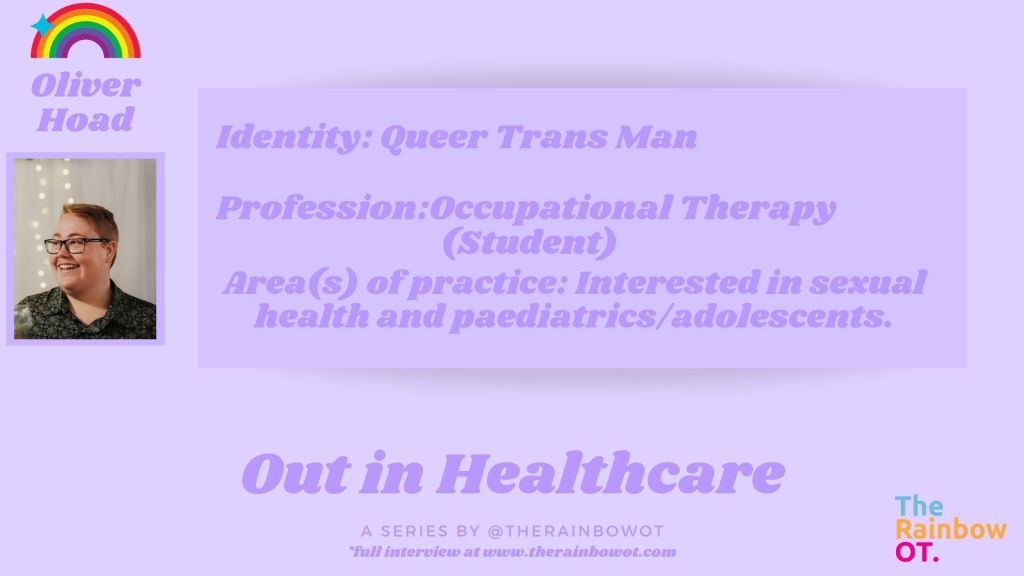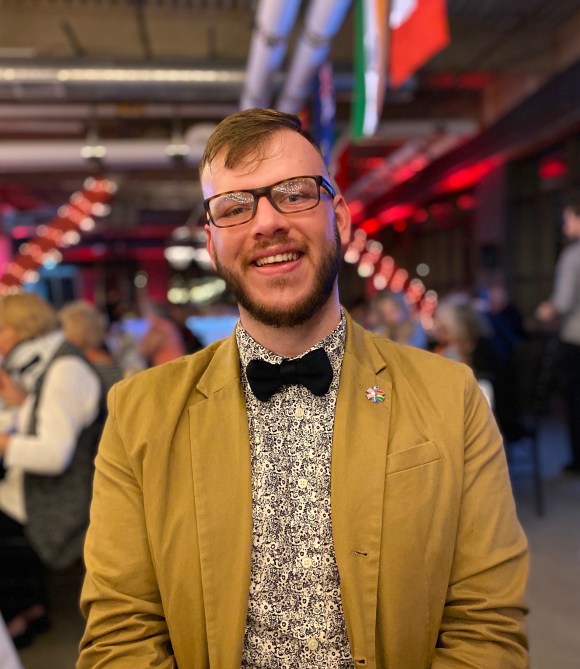
I always found the idea of ‘coming out’ as strange or forced, but like many other LGBTQIA+ individuals I went through the same process on my journey to self-discovery and establishing my identity. I came out “officially” at the age of 17, or as I would prefer to say it, I started to let people in to who I am at 17. That is the same age that I decided to pursue an education in occupational therapy.
I applied to 9 schools originally and decided to attend D’Youville College in Buffalo, NY for my combined BS and MS of human occupation and occupational therapy. OT school was challenging, energizing, and fulfilling. I was fortunate to have incredible faculty, family, and friends who supported and challenged me with my crazy ideas like starting a community wellness clinic on campus or creating the official D’Youville OT instagram page – which is where the idea of @therainbowot grew from.
It was during professional development lecture in my final year of OT school where I found enough passion and frustration to start my lifelong mission for enhancing education, inclusion, representation, and advocacy for those within the LGBTQIA+ community, inside and outside of healthcare settings. I was so excited in class when we finally had a lecture where part of the class discussion was designated to address LGBT topics in OT. There was an objective to cover vast cultures including Korean and Latinx culture in a two hour span, leaving little time to cover all of the material, including LGBT+ topics. Without saying any names, it was clear to me that the professor was unprepared to answer questions about LGBT+ topics, especially those surrounding trans individuals – so the spotlight was turned to me (the token gay person). This wasn’t a new situation to me or the first time that I was placed with the responsibility to discuss LGBT+ topics in a class. I remember feeling powerful, frustrated, and concerned. There is a great amount of pressure when discussing topics and identities of the LGBT+ community, especially when my identity of being a white, gay, male (sex) does not come close to representing the entire community. It’s important to note that at the time of this class, I hadn’t really started acknowledging my non-binary identity, so I identified as a male. My concern came from the fact that I was one student, unable to represent or educate on all LGBT+ topics in only one section of the class. What did the other sections talk about? Did they discuss what it means to be trans? Did anyone validate the trans identity or provide definitions for the letters of the acronym? From there, the fire was lit to go on my own path of providing education and resources to anyone regarding these topics and more.
Where am I now? Well, The Rainbow OT has been running for just about five years. I launched my first LGBTQIA+ 101 series, a pronoun promise campaign, and have been a guest on two podcasts discussing LGBT+ related topics and occupational therapy’s role. With the support and safe space provided for friends that I owe the world to, I was able to let others in to who I am, a proud non-binary individual. I’m still in the beginning of my journey to self-discovery, but I am so happy with where I am when I look back at where I was. Where are we going next? You’ll just have to tag along and see.
XX,
Devlynn Neu
They/He
Occupational Therapist
The Rainbow OT

